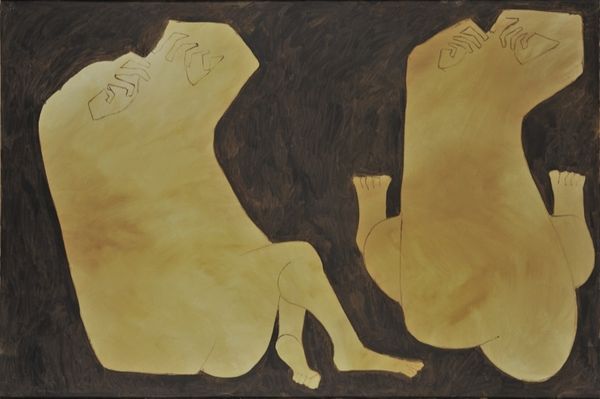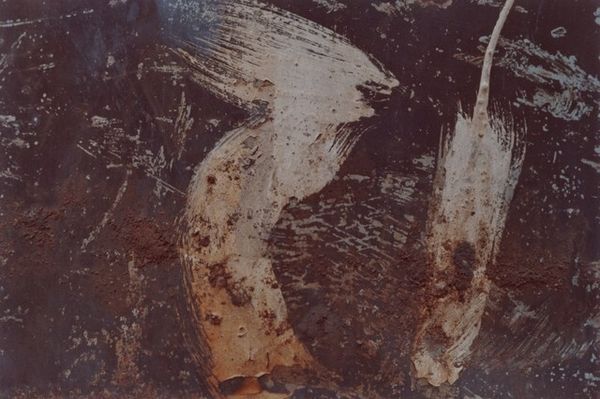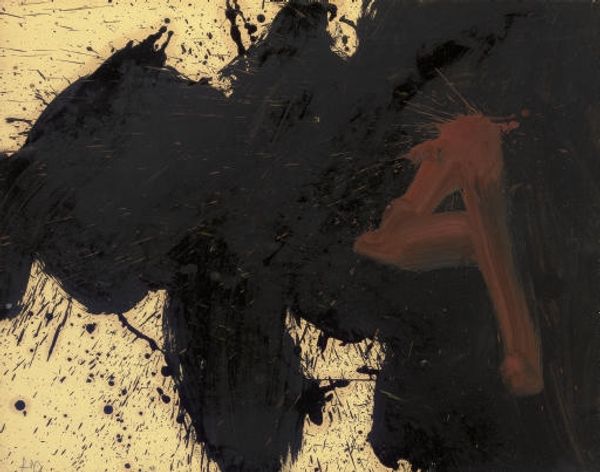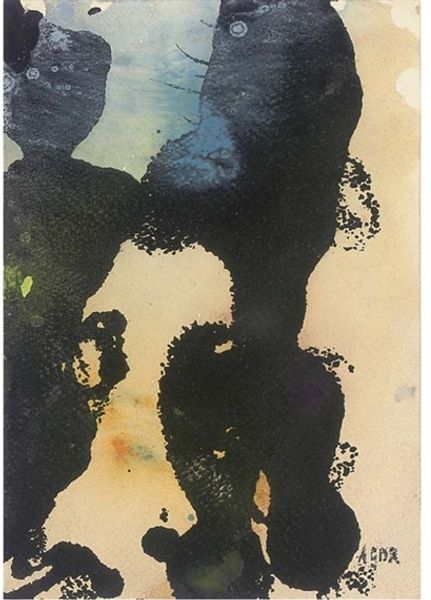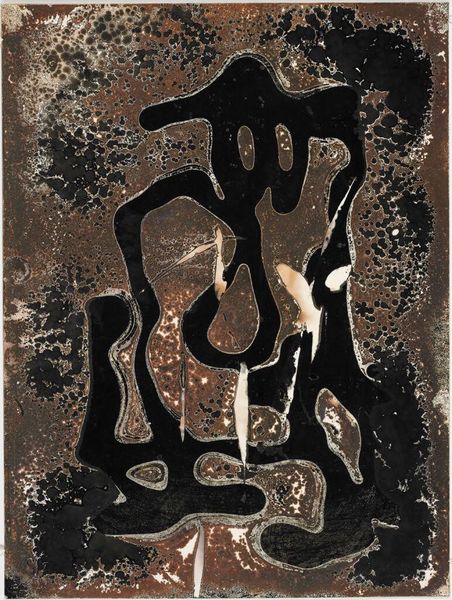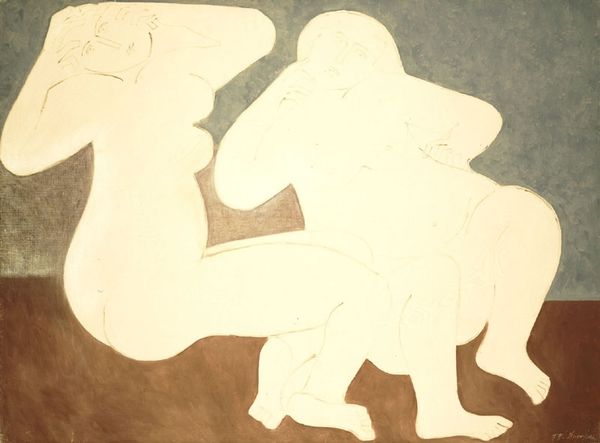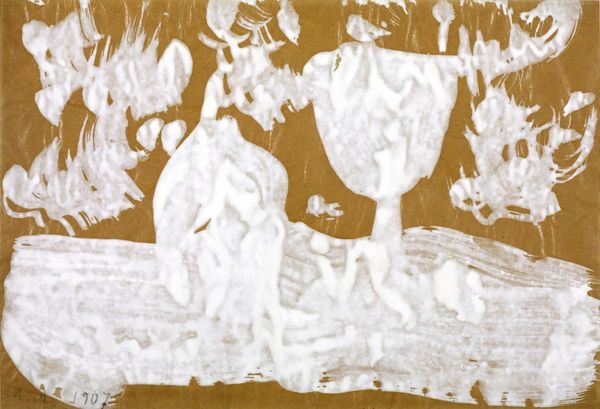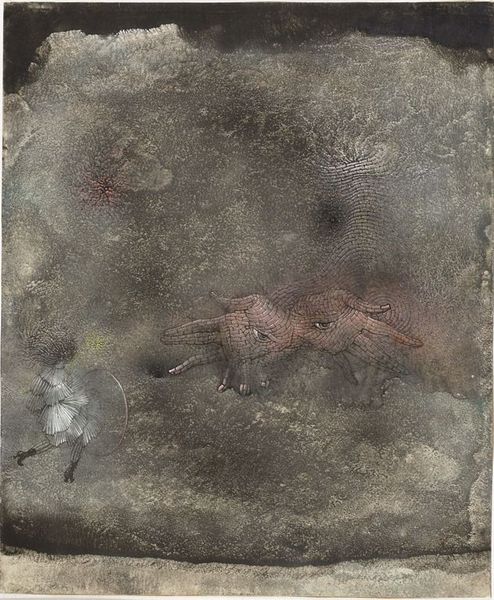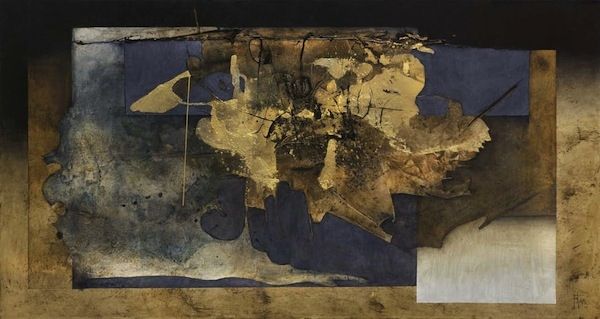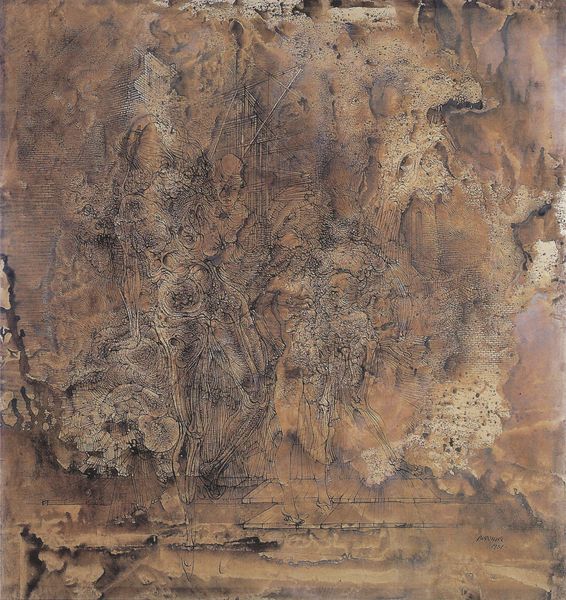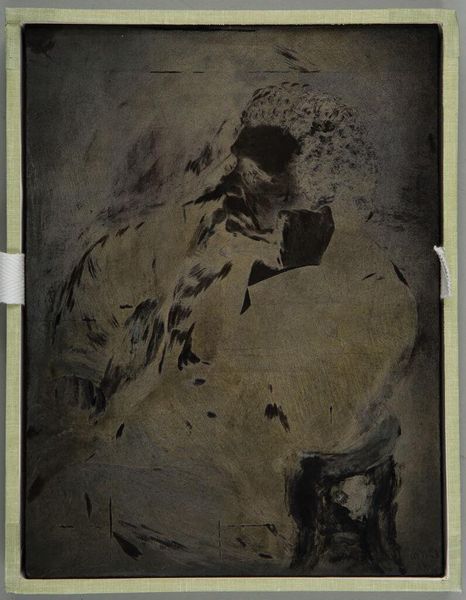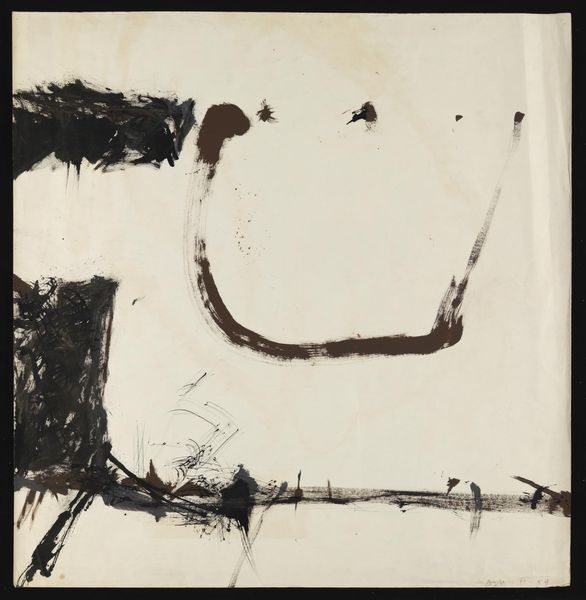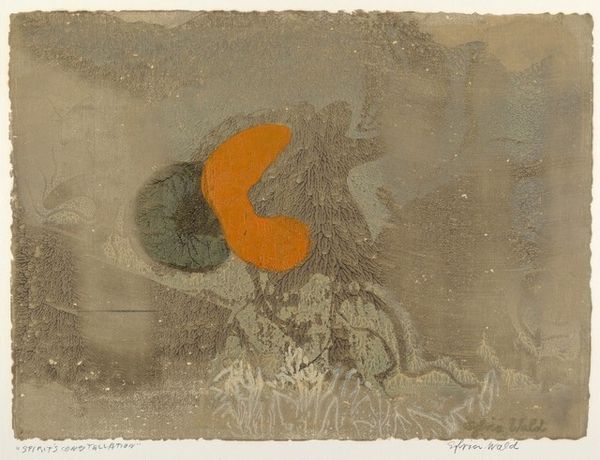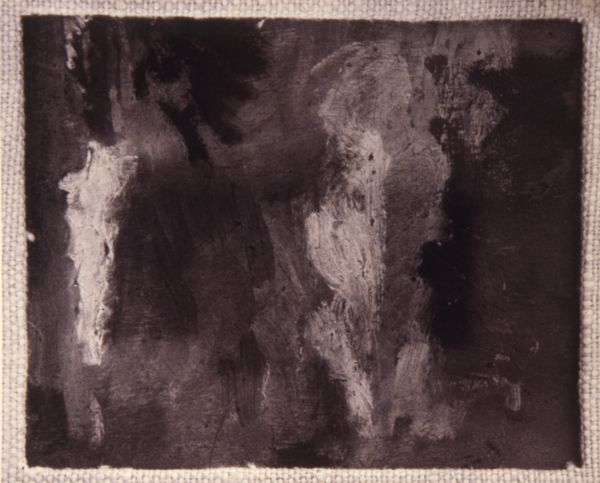
oil-paint
#
abstract-expressionism
#
abstract expressionism
#
oil-paint
#
form
#
oil painting
#
matter-painting
#
abstraction
#
calligraphy
Dimensions: 15 7/16 x 21 1/4in. (39.2 x 54cm)
Copyright: No Known Copyright
Curator: Here we have Morita Shiryū’s “Tiger,” completed in 1964. Shiryū, a prominent figure in post-war Japanese art, created this oil painting which is currently held in the collection of the Minneapolis Institute of Art. Editor: My immediate impression is of raw power barely contained. The thick brushstrokes, the stark contrast between the ochre figure and the black ground... it feels almost primal. Curator: Indeed. Shiryū's work can be viewed as a dialogue between traditional Japanese calligraphy and the Western abstract expressionist movement. The "tiger" emerges as a character born from symbolic deconstruction, an echo of the ancient East. Editor: Exactly! The very concept of a "tiger," fraught with cultural significance across Asia as a symbol of strength and protection, gets wrestled onto a Western canvas. This creates an immediate tension. What happens when these loaded cultural icons are abstracted, put on display for Western consumption, divorced from their original ritual contexts? Curator: I believe Shiryū is interested in precisely that decontextualization. He strips away the representational trappings to expose the emotive power of form itself. That heavy impasto almost feels like scarring on a primordial landscape. It shows how certain symbols seem eternally imprinted on the collective consciousness. Editor: That's it. I'm also struck by the tension of something half-visible emerging out of darkness. It makes me question what gets to be seen, valued, in artistic discourse, who is doing the viewing, and why the tiger is partially obscured from our comprehension. Curator: Considering Shiryū was writing critically of calligraphy as tethered to a conservative establishment around this time, that sense of emergence makes me consider artistic freedom. By rendering something so deeply engrained as a word, “tiger,” into abstraction, is he gesturing towards creative liberation? Editor: Shiryū asks important questions about what art can represent outside of traditional roles and restrictive identities. He encourages us to recognize symbols’ power in historical oppression and emancipation, and the possibilities within abstract and evolving futures. Curator: His legacy prompts an ongoing reassessment of what symbols signify and the feelings they inspire, their meanings molded across time and experience. Editor: And, it forces a continuing critical lens upon which art makes it into museums in the first place, its inherent power dynamics, and our place in that legacy.
Comments
minneapolisinstituteofart about 2 years ago
⋮
The character tiger appears to morph into a tiger itself in this work. Instead of using a colored ink, Morita developed a technique in which he first wrote with an aluminum flake pigment mixed with PVA glue onto smooth black paper and then coated the written surface with lacquer. Morita was a proponent of “calligraphy without characters,” reducing writing to abstract forms that defy legibility. During the 1950s and 1960s, Morita actively communicated with European abstract artists and American abstract expressionists, acting as a bridge to promote calligraphic arts. In East Asia, tigers are considered auspicious and are one of the twelve zodiacs.虎Tiger
Join the conversation
Join millions of artists and users on Artera today and experience the ultimate creative platform.
